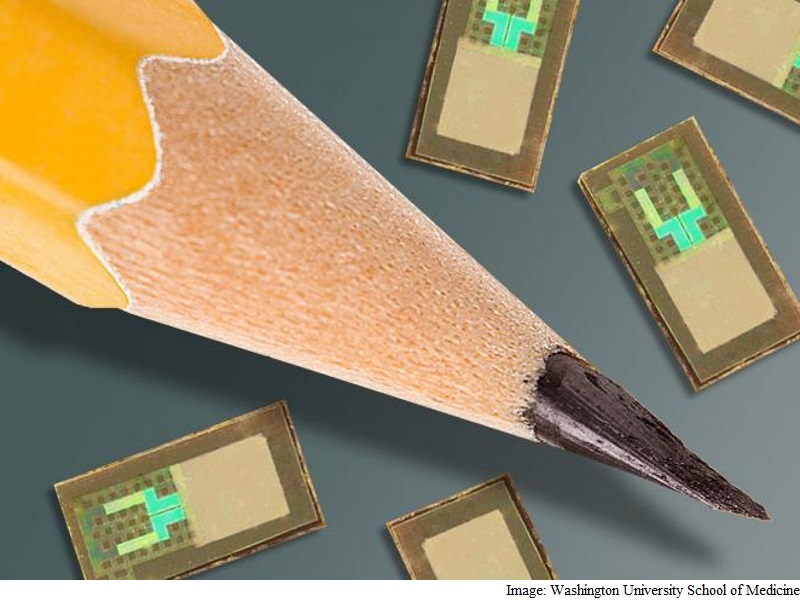- Home
- Science
- Science News
- New Brain Implants Can Dissolve When No Longer Required: Study
New Brain Implants Can Dissolve When No Longer Required: Study

Developed by scientists at Washington University School of Medicine in St Louis and engineers at University of Illinois at Urbana-Champaign, the implants can be used to monitor patients with traumatic brain injuries.
"The new device dissolves over time so you do not have something in the body for a long-time period, increasing the risk of infection or chronic inflammation," said Rory KJ Murphy, neurosurgery resident at Washington University School of Medicine.
"Using resorbable devices negates the need for surgery to retrieve them which further lessens the risk of infection and further complications," Murphy added in a paper published in the prestigious journal Nature.
The devices are made mainly of polylactic-co-glycolic acid (PLGA) and silicone and can transmit accurate pressure and temperature readings as well as other information.
The researchers tested the sensors in baths of saline solution that caused them to dissolve after a few days.
Next, they tested the devices in the brains of rats. Having shown that the sensors are accurate and that they dissolve in the solution and in the brains of rats, the researchers now are planning to test the technology in patients.
In patients with traumatic brain injuries, neurosurgeons attempt to decrease the pressure inside the skull using medications.
If pressure cannot be reduced sufficiently, patients often undergo surgery.
The new devices could be placed into the brain at multiple locations during such operations.
The researchers believe they can build similar absorbable sensors to monitor activity in organ systems throughout the body.
Get your daily dose of tech news, reviews, and insights, in under 80 characters on Gadgets 360 Turbo. Connect with fellow tech lovers on our Forum. Follow us on X, Facebook, WhatsApp, Threads and Google News for instant updates. Catch all the action on our YouTube channel.
- Samsung Galaxy Unpacked 2025
- ChatGPT
- Redmi Note 14 Pro+
- iPhone 16
- Apple Vision Pro
- Oneplus 12
- OnePlus Nord CE 3 Lite 5G
- iPhone 13
- Xiaomi 14 Pro
- Oppo Find N3
- Tecno Spark Go (2023)
- Realme V30
- Best Phones Under 25000
- Samsung Galaxy S24 Series
- Cryptocurrency
- iQoo 12
- Samsung Galaxy S24 Ultra
- Giottus
- Samsung Galaxy Z Flip 5
- Apple 'Scary Fast'
- Housefull 5
- GoPro Hero 12 Black Review
- Invincible Season 2
- JioGlass
- HD Ready TV
- Laptop Under 50000
- Smartwatch Under 10000
- Latest Mobile Phones
- Compare Phones
- Redmi Turbo 5
- Redmi Turbo 5 Max
- Moto G77
- Moto G67
- Realme P4 Power 5G
- Vivo X200T
- Realme Neo 8
- OPPO Reno 15 FS
- HP HyperX Omen 15
- Acer Chromebook 311 (2026)
- Lenovo Idea Tab Plus
- Realme Pad 3
- HMD Watch P1
- HMD Watch X1
- Haier H5E Series
- Acerpure Nitro Z Series 100-inch QLED TV
- Asus ROG Ally
- Nintendo Switch Lite
- Haier 1.6 Ton 5 Star Inverter Split AC (HSU19G-MZAID5BN-INV)
- Haier 1.6 Ton 5 Star Inverter Split AC (HSU19G-MZAIM5BN-INV)












